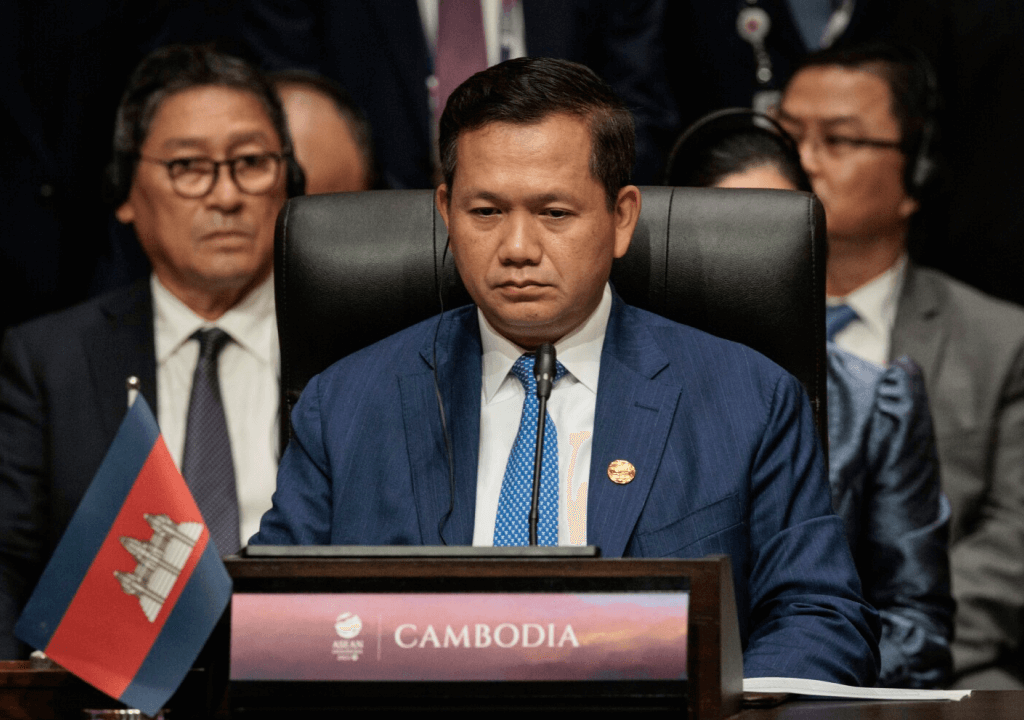Cambodia, a monarchy concealed beneath a veneer of constitution, is notorious for its history of authoritarian regimes and the relentless suppression of opposition. Today, the latest iteration of this authoritarian state is defined by Hun Sen, the nation’s most influential figure, and his family. Other political parties exist largely for ceremonial purposes, ensuring that they never challenge the dominance of the ruling Cambodian People’s Party. With more than 95 percent of parliamentary seats secured, Hun Sen’s power remains unchallenged, despite his formal transfer of the prime ministership to his eldest son. While the title may have passed, control is still concentrated within the family, and political dissent is met with swift retribution. Most recently, the government imprisoned opposition leader Sun Chanty on the ever-ubiquitous charge of “Inciting Disorder”—a familiar tactic used by authoritarian regimes to silence their critics. This act of repression is merely the latest in a series of moves under Hun Sen’s rule, one in which the judiciary has been weaponized to muzzle political adversaries and activists, while independent media is systematically silenced, ensuring the regime’s stranglehold on power endures.
Sun Chanthy, president of the Nation Power Party and a prominent opposition figure, was found guilty in a Phnom Penh court, sentenced to two years in prison, and banned from running for office after being convicted of inciting social disorder. The court also imposed a fine of 4 million riel (£800) and stripped him of his right to vote or stand for election. The case focused on Sun Chanthy’s social media posts, including a video recorded during a meeting with supporters in Japan, in which he criticized the government. Pro-government media reports at the time of his May arrest claimed he had accused the government of burdening citizens with debt through bank loans and denounced its social welfare system. This was enough for the authoritarian regime to target him. Given the ruling party’s strong influence over the courts, the verdict was widely anticipated.
The defense lawyer, Choung Choungy, called the ruling an injustice to his client and stated that they were considering whether to appeal. He told Agence France-Presse that the punishment was excessively harsh and emphasized that Sun Chanthy’s comments were not a mistake, but rather constructive criticism aimed at development.
Sun Chanthy was previously a senior member of the Cambodia National Rescue Party, the former opposition party that was dissolved by the courts ahead of the 2018 elections. He later joined its unofficial successor, the Candlelight Party, which was banned from participating in last year’s election—a one-sided contest that was won by the longtime authoritarian leader, Hun Sen. In late 2023, Sun Chanthy played a key role in forming a new opposition party, the Nation Power Party.
Hun Sen, who ruled Cambodia for nearly four decades, transferred power to his son, Hun Manet, shortly after the controversial 2023 general election. As prime minister, Hun Sen cemented his control over the country, methodically silencing opposition, activists, and independent media. When he appointed his eldest son, Hun Manet, as his successor, some dared to hope that civil liberties would improve. Manet had studied in the United States and Britain, where he was exposed to more liberal ideas about elections and human rights. However, since he took power in August 2023, those hopes, though modest, have evaporated. Despite frequently emphasizing the need for independent media and civil society, Manet’s government has moved in the opposite direction. Meanwhile, Hun Sen remains a powerful figure, leading the Cambodian People’s Party and heading the Senate. It’s clear that this type of governance can’t encourage fearless opposition and leaders like Sun Chanthy.
As usual, the authorities have denied that the case against Sun Chanthy is politically motivated. Yet, he is merely the latest in a long line of targets—among many others. Rong Chhun, an adviser to the Nation Power Party, is also facing incitement charges and could face up to six years in prison if convicted. This year, similar charges have been levied against union leaders, environmental activists, and Mech Dara, an award-winning Cambodian journalist renowned for exposing corruption and human trafficking. Dara’s arrest in September sparked an international outcry. The regime has also extended its crackdown on dissent to Cambodians abroad, securing deportations from Thailand and Malaysia. The authoritarian machine marches on, unyielding in its pursuit. Though many have grown accustomed to the regime’s tactics, history shows that there is a time for every regime.








